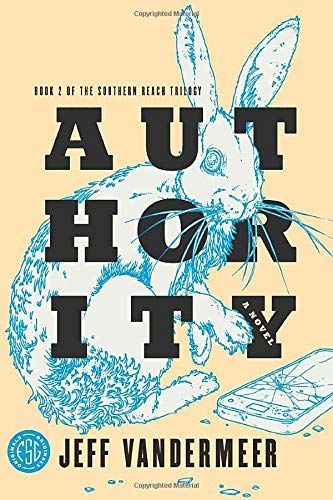
Authority A Novel
John Rodriguez, the new head of a secret agency tasked to monitor Area X—a lush and remote terrain mysteriously sequestered from civilization—is faced with disturbing truths about himself and the agency he has sworn to serve when the secrets of Area X begin to reveal themselves. Original. 50,000 first printing.
Reviews
Karolina@fox
Milly Schmidt@meeli
Gabe Cortez@gabegortez
c0up@c0up
Ashley Freeman@ashnfreeman
aisha@aishas
Anna @ann_omalia
Patrick Book@patrickb
Ryan Mateyk@the_rybrary
Holly@tolya
B. R.@bluerae
Kyle Curry@kcurry24
Eitan Hershkovitz@ehershkovitz
Kimber Severance @kimberseverance
jaz ☁️@whatjazreads
Vladimir@vkosmosa
Dave | Storyphoria@storyphoria
Isabella@jeanvaljeune
Janice Hopper@archergal
Becky Carpenter@the_geometrist
James Eaton@jameseaton
Kyle Vice@kylevice
Kyle S@kylesq9
jillian tenner@jilliantenner
Highlights
aisha@aishas
Holly@tolya
Holly@tolya
Holly@tolya
Holly@tolya
Holly@tolya
Holly@tolya
Holly@tolya
Page 270
Holly@tolya
Page 252
Holly@tolya
Holly@tolya
Page 227
Holly@tolya
Holly@tolya
Holly@tolya
Page 175
Holly@tolya
Page 155
Holly@tolya
Page 129
Holly@tolya
Holly@tolya
Page 111
Holly@tolya
Page 106
Holly@tolya
Page 105
Holly@tolya
Page 79
Holly@tolya
Page 67
Holly@tolya
Page 41
Holly@tolya
Page 19